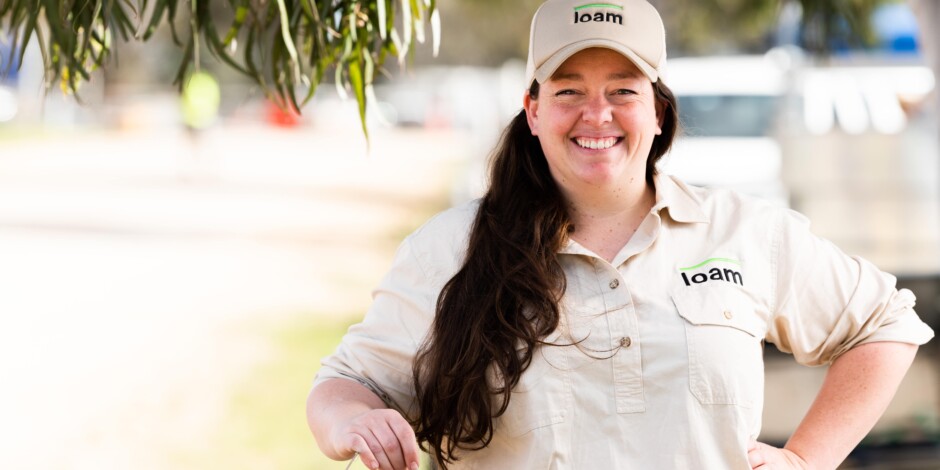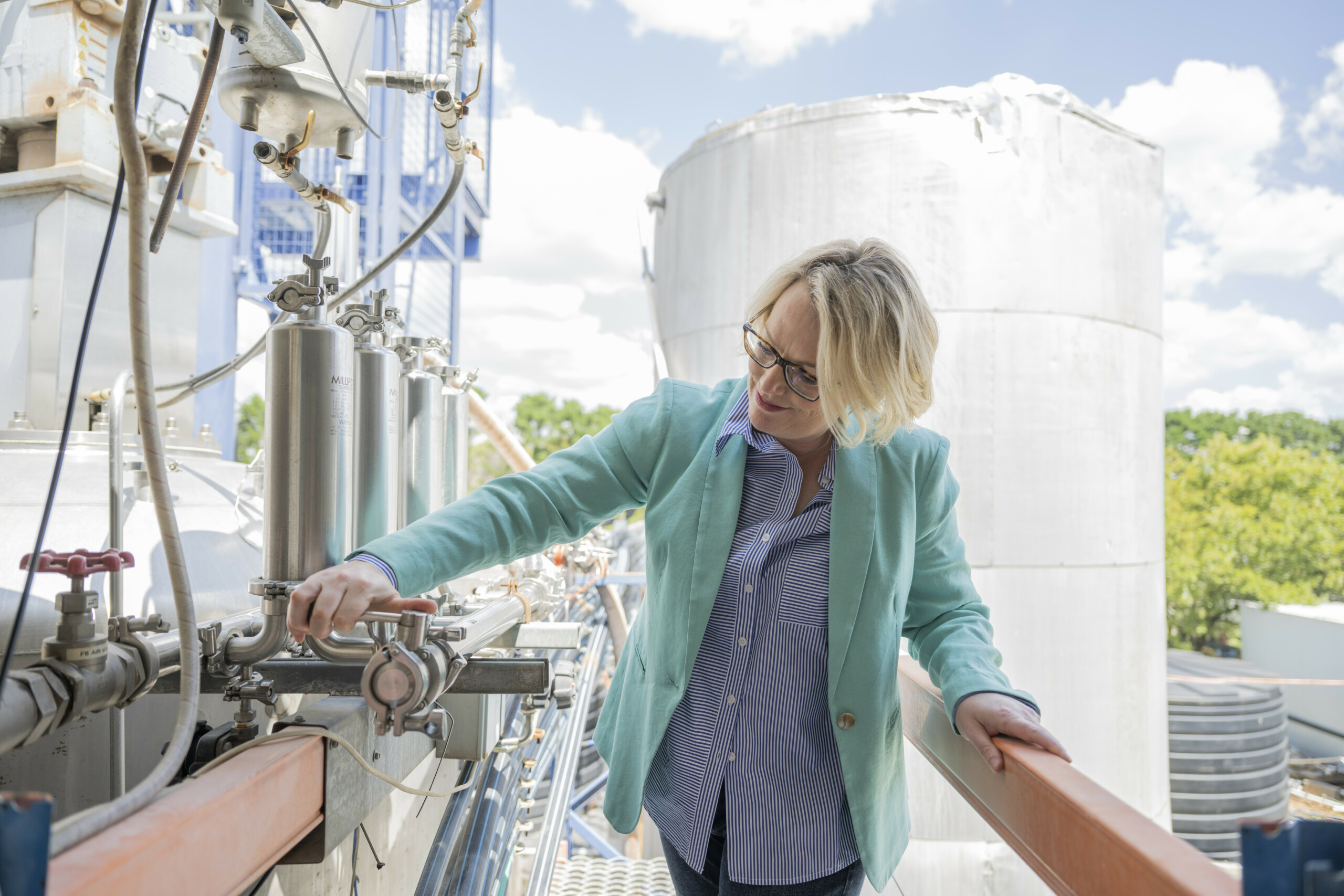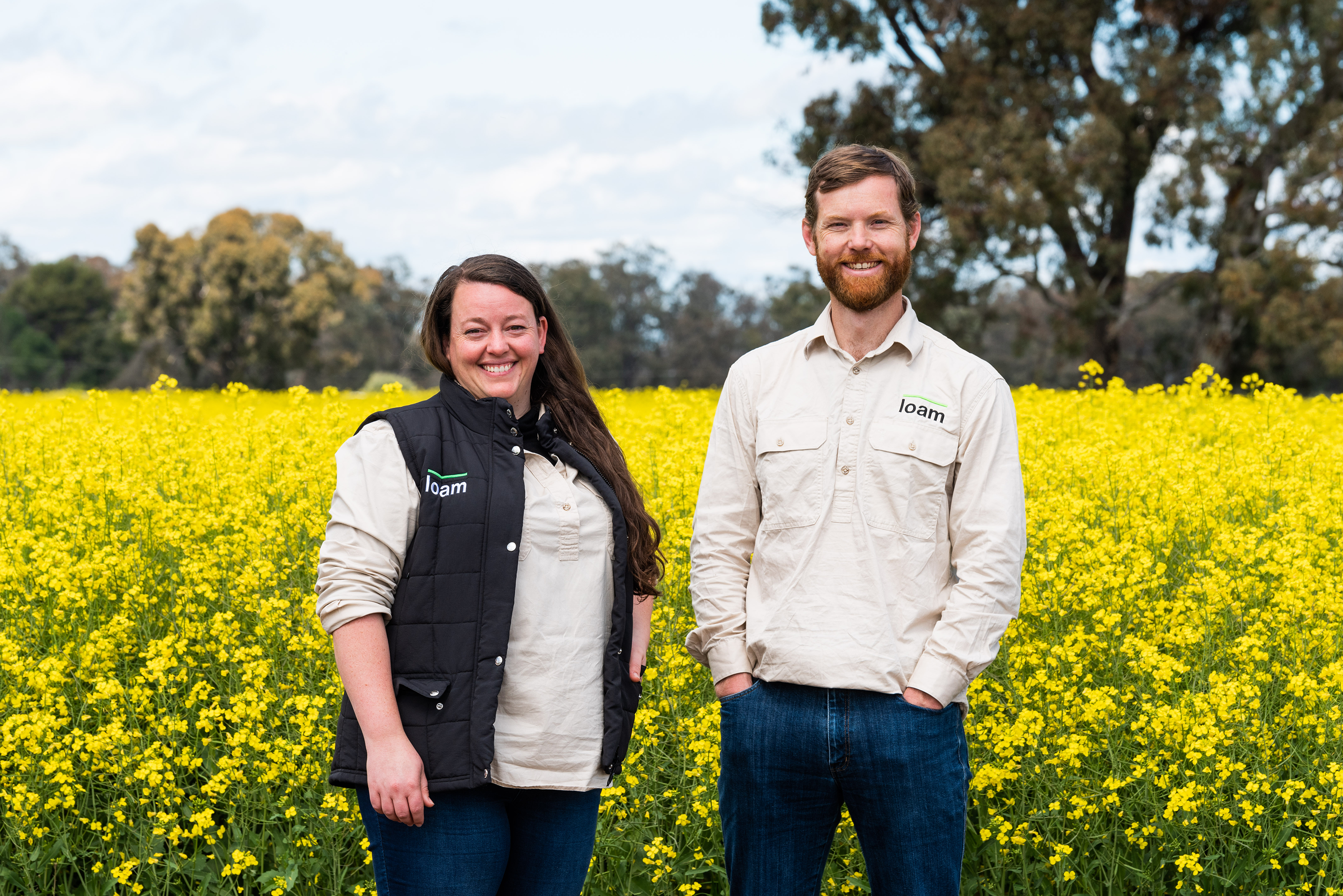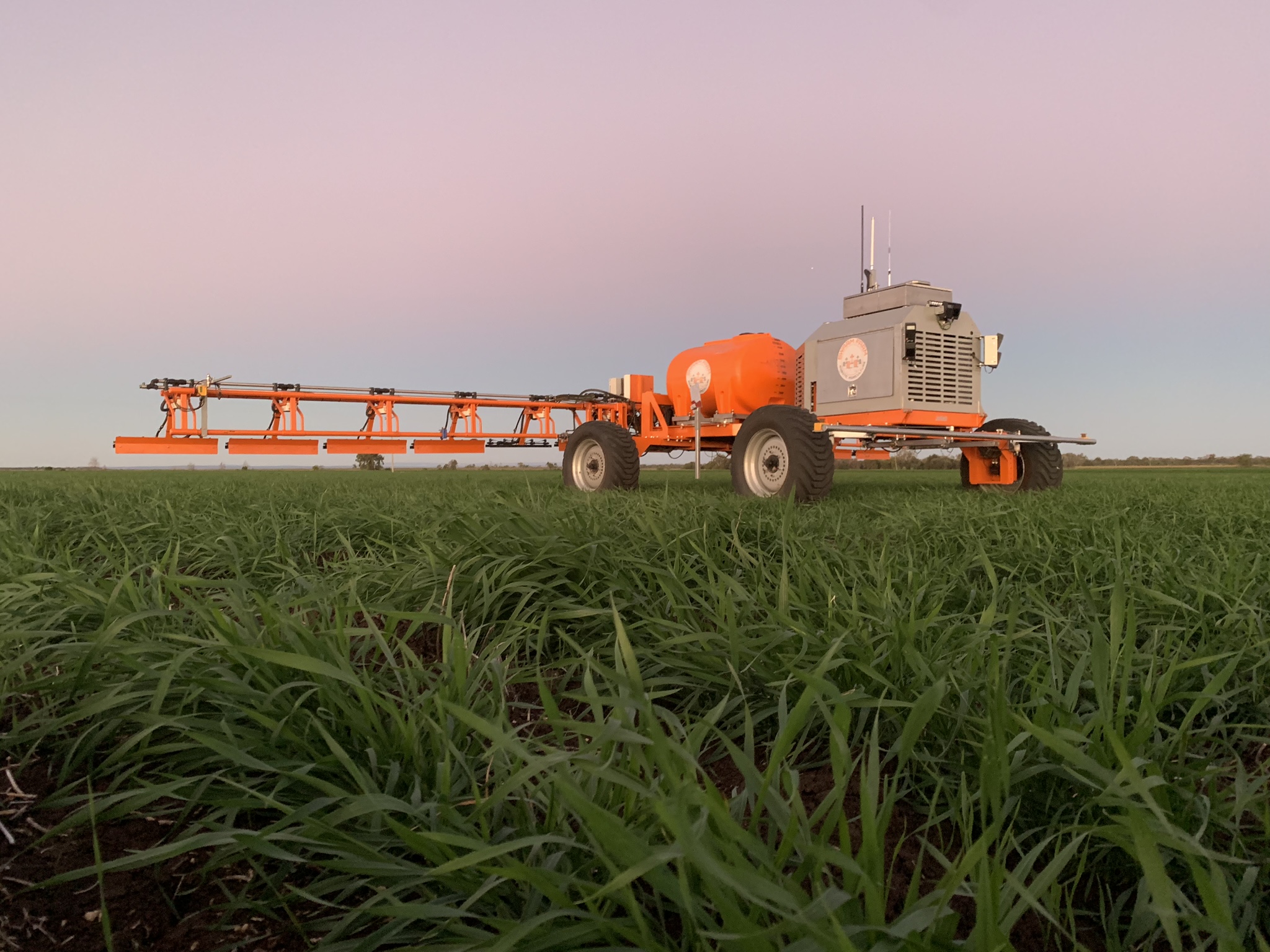Aussie agrifood tech investment holds strong: What to expect from AgFunder’s 2024 report
Investment in Australian agrifood tech remained relatively robust last year – even in the face of a global downturn. Now, local data for 2023 suggests it’s continuing to hold strong. Leading the way are upstream, climate-conscious innovations.
 Loam Co-founder Tegan Nock (CPO).
Loam Co-founder Tegan Nock (CPO).
The AgFunder Asia-Pacific AgriFoodTech Investment report 2023 revealed Australian startups in this sector raised US$317 million in 2022. That’s a 24.5% decline compared to the previous year.
At first glance, it’s not a great stat. But it’s not out of line with global trends across all tech investment. Comparatively, it’s actually a fairly strong result.
Worldwide there was a 44% dip in agrifood tech funding in 2022. In the APAC region, the decline was 58%.
Upstream investment in Australia in particular – that is, investment into food production tech as opposed to distribution tech – increased by 24% in 2022, bucking the broader trends both locally and globally.
RELATED: Top agrifood tech startups selected for evokeAG. 2024
AgFunder partner Michael Dean will present Australian investment data for 2023 at AgriFutures evokeAG. in Perth, Western Australia on 21 February, 2024.
While dollars invested in Aussie agrifood tech might be down again, there’s still promising movement in the sector. According to the APAC data, the number of Australian deals closed during the first half of 2023 kept pace with the same period in 2022.
They may be writing smaller cheques, but investor interest remains steady.
In H1 2023, Australian agrifood tech startups raised US$146 million in funding, putting Australia in fourth place globally in terms of startup investment (behind China, India and Hong Kong). That’s up a notch from fifth place in 2022.
Anecdotally, 2023 has also seen continued investment into upstream innovation in Australia.
There’s been significant raises for tech supporting farmers with productivity and reducing their carbon footprint, along with ongoing activity in the alternative proteins and plant-based meat space.
Here we look at four Australian agrifood tech startups illustrating some of the key trends seen over the past 12 months – and offer a hint at what might be to come.
RELATED: Add your agrifoodtech investments to be included in our reports
All following figures are in USD.
Cauldron
Precision fermentation startup Cauldron raised $7 million in seed funding in March 2023, including from CSIRO’s venture capital arm Main Sequence.

From its fermentation facility in Orange, NSW, Cauldron creates animal-free protein, fat and fibres for use in plant-based meat and dairy products that help achieve a taste and feel closer to the real thing.
The ingredients can also be used to create biodegradable plastics.
RELATED: Balancing the emissions budget: The interplay of lifestyle, technology and sustainability
Cauldron’s raise shows a continued focus from investors on the alternative protein sector, particularly on deep tech and the science behind producing plant-based foods.
It also follows the success of other Australian startups in this space, with the likes of Vow and Nourish Foods making waves on the international scene.
Loam Bio
Loam Bio kicked off 2023 with a $73 million Series B round, and simultaneously launched its CarbonBuilder product to Australian farmers.
It’s a strong example of startups seeing success upstream. Loam Bio supports producers with its microbial technology. A specific microbe can be introduced to crop seeds, allowing them to more effectively collect and store carbon dioxide from the air.
It facilitates carbon sequestration at potentially huge scale, while creating high-quality, carbon-rich soil, meaning higher yields and lower risk for farmers.

Loam Co-founders Tegan Nock (CPO) and Guy Hudson (CEO). Photo by Rachael Lenehan Photography
The latest funding brought total investment in Loam to just under $100 million, making it Australia’s most funded agritech startup to date.
RELATED: Three WA innovators harnessing the potential of seaweed
All G Foods
All G Foods is another key player in the Australian dairy alternatives space. It’s following a strong growth path, but in October 2023 news of a partial merger with Fenn Foods’ vEEF brand sparked talk of another trend to come – consolidation.
All G’s plant-based meat division LOVE BUDS merged with vEEF to create The Aussie Plant Based Co.
The move was “a natural progression” and a “pivotal strategic move” for All G Foodds, Founder and CEO Jan Pacas said in a blog post. It allowed the ‘deep tech’ arm of the business to focus on precision fermentation to create cow-free dairy proteins, while the plant-based meat arm focuses on the consumer-facing side of things.
It has, however, attracted speculation in the business press. The Australian Financial Review called it “the start of a consolidation period” for the sector, driven by a dip in consumer demand for plant-based options.
RELATED: Responsible innovation and a call to action
SwarmFarm
In February 2023, SwarmFarm raised $12 million in Series A funding for its autonomous solutions combining hardware and software, designed to be tailored to individual farmers’ needs.

SwarmFarm pairs its autonomous SwarmBot vehicles with its operating system network, SwarmConnect. This allows farmers and developers to program robots to address specific needs, improving productivity and reducing waste efficiently.
Vehicles can be uniquely programmed for specific jobs in specific areas – weeding, precision-spraying or mowing, for example.
SwarmBots currently operate across more than 1.3 million acres of commercial land. In 2022, they reportedly operated for 64,000 hours combined, and reduced use of pesticides by about 780 tonnes.
If you’re a startup or scaleup that has raised or secured funding in 2023 make your deals count. The easiest way to ensure your agrifoodtech investment deals are included in the 2023 AgFunder AgriFood Tech Investment Report is to add them directly to Crunchbase.
Want to hear more on the 2023 investment landscape and predictions for the year to come? Keen to meet the next wave of agrifood tech startups? Tickets are on sale for evokeAG. 2024 now. See the full program here. Following a sell-out event in 2023 we are encouraging delegates to secure their tickets, flights and accommodation early.
